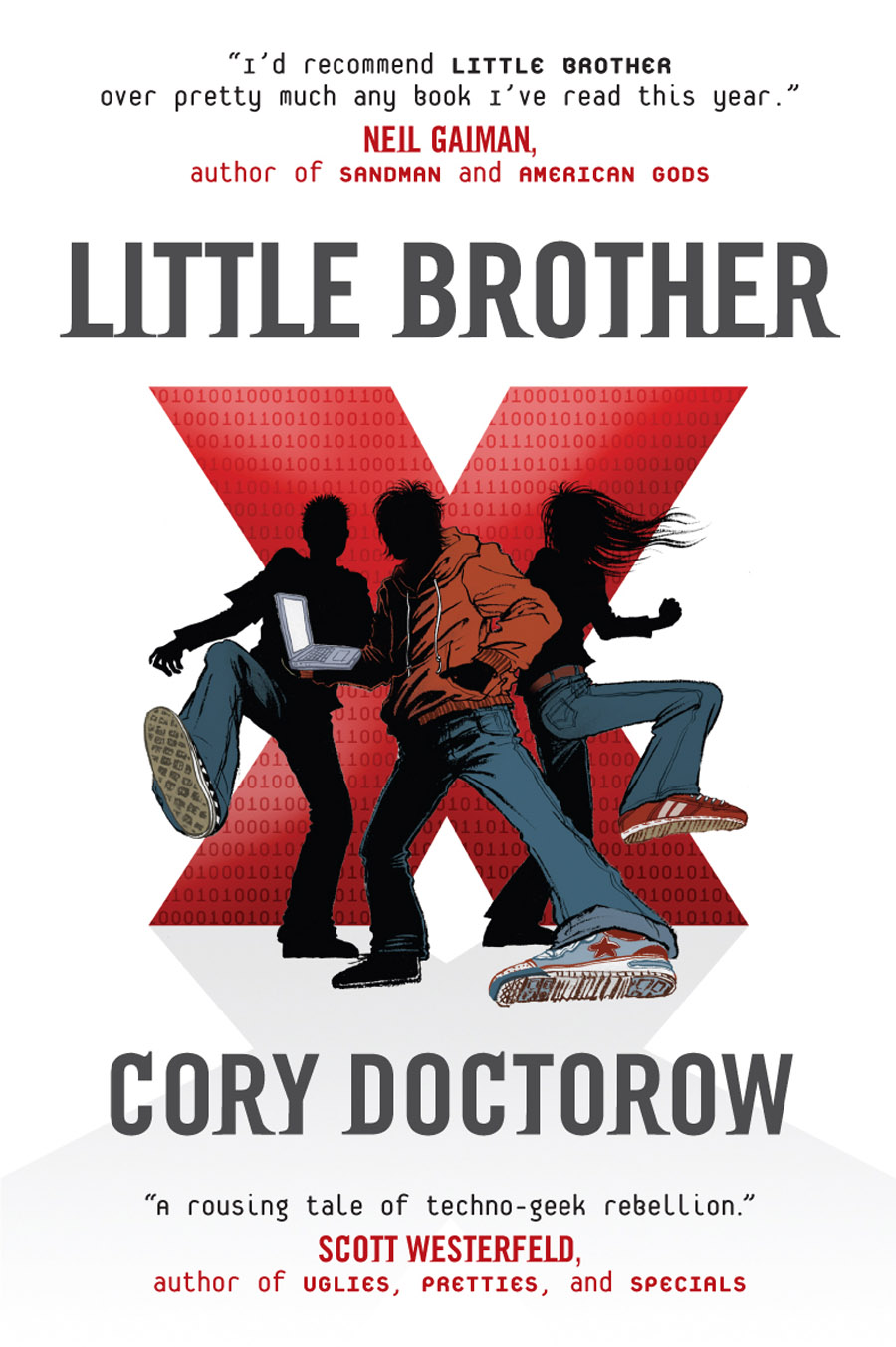
Tom Doherty Associates, April 29 2008
young adult futuristic thriller
Summary:
In futuristic San Francisco, Marcus uses all his coding, hacking and programming skills to outsmart the technology used to track people, everywhere. But when a terroristy attack blows up the Bay Bridge, the city is thrown into utter, desperate panic -- and Marcus and his friends are thrown into jail by the Department of Homeland Security. Questioned brutally for days, they are released under a death threat of silence to find that San Francisco is now controlled by the DHS, who treat everyone as a terrorist. If they want their city back, Marcus will have to use all his hacking skills to take down the DHS.The cover.
Huh. The drawing style seems to border on anime, but I'm not sure it makes this book attractive for its age group. Equally neutral on the font choices and text placements. I do like the white background with the red X; it's difficult to pull off a white background well, and here they've managed it.
The book:
Ashley at Book Labyrinth assured me that what made Little Brother a worthwhile read was its real-life importance about technology. She was so right.
This novel doesn't boast stellar writing (in a one-sentence paragraph, Doctorow uses some derivative of "grab" three times) or any truly deep insight into teens' minds. At times, the dialogue is unbearably cheesy (Marcus actually says "Hiya!" -- exclamation mark and all -- to his girlfriend. *gag*), and characters are liable to go on speeches to sledgehammer home an opinion.
And yet, somewhow, the reader isn't likely to mind the long passages of narration as Marcus details the crypting of the Xnet, SMTP tunneling, and the Onion Router, which I wish I'd read of when I went to China and its great Internet Firewall. And Marcus explains things clearly, with plenty of analogies, so that when he says, "If you've never programmed a computer, you should. There's nothing like it in the whole world. When you program a computer, it does exactly what you tell it to do" (p. 119), you're inclined to agree with him.
(Trust me, I took a programming course last year and really -- programs actually do whatever you tell it to do. It's exhilarating... and maddening, when you fail to debug the program properly.)
It isn't the action sequences that stand out in Little Brother, the prison questioning and torture; it's the quiet (then not-so-quiet) pushing-back of Marcus's network, the "Don't trust anyone under 25", the realizations and redrawings of what terrorism means, and how technology isn't meant to keep things secret; it's meant to keep things secure. This book truly is relevant, so please, read it.
Also, it's funny. Reading the following passage, I started guffawing in the middle of an airport, which was awkward but not awkward enough to stop me from laughing. Marcus, as M1k3y, has set up a press conference in a game called Clockwork Plunder to keep his location secure:
You could easily tell who the press were: they were the noobs who played their characters like staggering drunks, weaving back and forth and up and down, trying to get the hang of it all, occasionally hitting the wrong key and offering strangers all or part of their inventory, or giving them accidental hugs and kicks. (p. 234)I'm sorry, just, "offering strangers all or part of their inventory" ROFLLOLOLOLOL--
Rating: 4 out of 5








